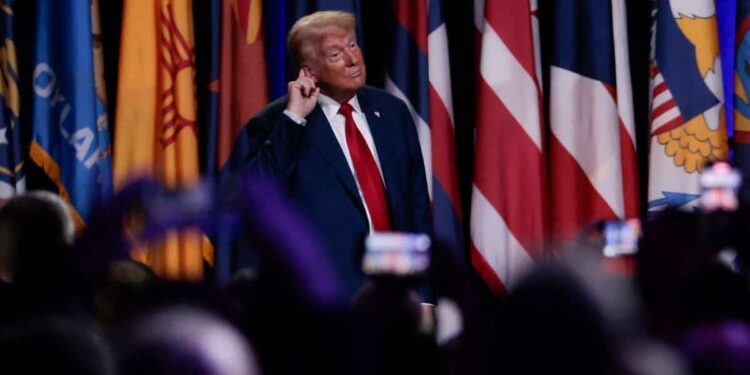The special counsel prosecuting former President Donald Trump for unlawfully attempting to overturn the results of the 2020 election released a revised indictment Tuesday to take into account a recent Supreme Court ruling.
The document, which contains the same four counts as the previous one, issued on August 1, 2023, “reflects the prosecution’s willingness to respect and implement the findings and instructions of the Supreme Court,” said in a statement the spokesman for special prosecutor Jack Smith, Peter Carr.
Donald Trump therefore remains charged with “conspiracy against American institutions” and “violating the right to vote” of voters for his pressure on local authorities in several key states in order to invalidate the official results of the election won by Democrat Joe Biden.
In an unprecedented decision on July 1, the Supreme Court recognized broad criminal immunity for the president of the United States.
By a majority of six to three — conservative justices against progressives — the country’s highest court ruled that “the president enjoys no immunity for his unofficial acts,” but that he “is entitled to at least a presumption of immunity for his official acts.”
She ruled out prosecution of all discussions between Donald Trump and the Justice Department until the end of his term.
Trial already postponed
The court therefore sent the case back to trial judge Tanya Chutkan to determine what acts are potentially immune from criminal prosecution. The burden is on the prosecution to demonstrate that they are not when they were committed in the exercise of its functions.
As a result, prosecutors removed from the revised indictment a series of conversations or communications at the time of the events between Donald Trump and executive branch officials, particularly the Justice Department.
The trial, originally scheduled for March 4 in Washington, had already been postponed until the Supreme Court ruled on Donald Trump’s claim of criminal immunity as a former president.
Targeted by four criminal proceedings, the Republican candidate for the presidential election is pulling out all the stops to be tried as late as possible, in any case after the November 5 election.
Donald Trump was found guilty on May 30 in New York of “aggravated false accounting to conceal a conspiracy to pervert the 2016 election” in the case of the payment of $130,000, disguised as legal fees, to buy the silence of pornographic actress Stormy Daniels.
But this first criminal conviction, unprecedented for a former American president, will in all probability be the only one before the vote and the pronouncement of the sentence, scheduled for September, could also be postponed because of the decision of the Supreme Court.
If re-elected, Donald Trump could, once inaugurated in January 2025, order the federal prosecutions against him to be dropped.



